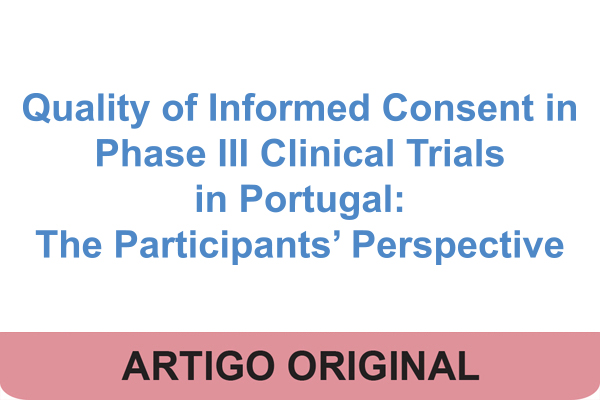SOCIAL MEDIA
Portuguese Medical Association's Scientific Journal

Introduction: Some studies show that participants do not always fully understand the informed consent form (ICF), which is one of the reasons for dropouts. This study aimed to adapt the Quality of Informed Consent (QuIC) questionnaire into a valid instrument to be applied to the Portuguese population and to measure its reliability and validity in the Portuguese population, by applying it to a sample of participants in controlled trials.
Methods: The QuIC questionnaire was developed to assess the quality of informed consent in clinical trials and consists of two parts, addressing both the objective (part A) and the subjective (part B) understanding. After being translated and validated into Portuguese, it was implemented in 100 cardiac participants of phase III clinical trials in a University Hospital Center.
Results: The QuIC-PT questionnaire showed excellent stability over time and good validity. All patients evaluated their participation and their health positively and recognized the main purpose of the clinical trial. Almost all participants understood their role in helping future patients and the purpose of the trial and realized that, by signing the ICF, they were participating in a clinical trial. However, none of them knew that their experimental treatment was not proven to be the best alternative for their condition.
Conclusion: The QuIC-PT questionnaire seems to be a valid and useful instrument to evaluate the participants’ understanding of the ICF. In this study, we found that some concepts, like ‘study protocol’ or ‘randomization’, were not well understood by participants when signing the ICF, especially by participants with lower education levels. They also believed that the experimental intervention would solve their health condition. Greater awareness about the importance of the informed consent process and ICF is necessary so that participants can fully understand the protocol, especially the risks involved, and their rights as participants.